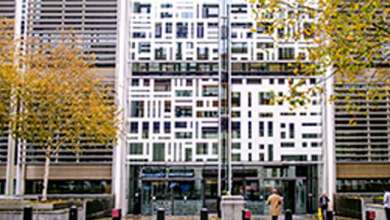Chancellor uses budget to back region’s Covid recovery plans

A CGI of how the new rail station at Moseley in south Birmingham will look. Today’s Budget announcement includes £59m for five new stations in the region
Birmingham: Chancellor Rishi Sunak today backed the West Midlands in its plans to drive a greener and fairer economic recovery from Covid-19 with a range of new measures and investments.
As well as a nationwide Coronavirus support package to help protect the region’s businesses and jobs, including the extension of the furlough scheme until September and a tax ‘Super Deduction’ for businesses that invest, the Chancellor also announced a further £225m of investments to back some of the region’s key schemes. These include:
- New rail stations and the re-opening of old railway lines in the Black Country and south Birmingham
- UK Central Hub – a major housing and commercial development scheme around the forthcoming HS2 Solihull Interchange near Birmingham Airport
- £116m for the regeneration of struggling town and city centres in the West Midlands Combined Authority (WMCA) area
- A £10m Wolverhampton-based Government taskforce to work with the WMCA in developing new construction technologies including low carbon, energy efficient homes
Around £59m will be for new rail stations at Darlaston and Willenhall on a reopened passenger line between Wolverhampton and Walsall and for new Moseley, Kings Heath and Hazelwell stations on a re-opened Camp Hill line.
The money means the two Black Country stations are now fully funded with the new south Birmingham stations receiving a sizeable contribution ahead of the remaining funding being confirmed later this month.
More than £116m will fund the regeneration of struggling town and city centres in the Black Country, including Rowley Regis (£19m), Smethwick (£23.5m), West Bromwich (£25m) Wolverhampton (£25m) and Nuneaton (£23.5m).
A further £50m will go to Solihull Council’s Urban Growth Company to help fund transport improvements around the HS2 Birmingham Interchange Station helping to unlock the full economic benefits of the high-speed rail line for the region. This will also free up more land for new homes and jobs at the UK Central Hub’s Arden Cross regeneration site, relieving pressure on surrounding Green Belt.
Meanwhile the Government’s new Modern Methods of Construction (MMC) Taskforce will be based at the Ministry for Housing, Communities and Local Government (MHCLG) which is relocating from Whitehall to Wolverhampton.
The West Midlands Combined Authority’s (WMCA) own Advanced Methods of Construction (AMC) Taskforce will be able to work closely with its new Government counterpart to help drive the development and use of more off-site manufactured components that can be assembled quickly and efficiently to produce good quality, affordable new homes that are also highly energy efficient.
Andy Street, the Mayor of the West Midlands, said: “The Chancellor has done exactly what we asked of him, and set out clear and wide-ranging support to help see West Midlands businesses and the self-employed through to the end of the roadmap and into the recovery stage.
“I am particularly pleased to see our asks for the West Midlands responded to so well, with significant cash for reopening old railway stations and lines, reviving town and city centres, and making the most of HS2 with the cash to get the incredibly ambitious plans for UK Central in Solihull off the ground.
“The pandemic has really hurt the West Midlands economy, but with the measures announced today, alongside our local plans, I am confident we will be able to bounce back quickly and start getting people back into work.”
Throughout the Covid crisis the West Midlands has worked together to identify the specific challenges facing the region, which research suggests could be hit harder economically than anywhere else in the UK.
Last summer the region outlined to Government what action was needed to stimulate the West Midlands economy in the short term and what building blocks were needed to support a long-term sustainable recovery that was both green and more inclusive.
Key requirements set out in the Recharge the West Midlands: Kickstarting the West Midlands Economy blueprint included the construction of better transport and digital links, the regeneration of more brownfield sites with good quality, affordable homes, and the need to get people back into work quickly by equipping them with the skills needed for the future.
The Government has already funded a number of proposals set out in the region’s ‘Recharge’ blueprint with the Chancellor’s Comprehensive Spending Review (CSR) last November which could see the West Midlands to receive more than £1.2 billion including a five-year intra-city transport settlement of an estimated £800m for the region to spend on public transport projects.
And in December the WMCA was awarded more than £51m by Government to transform more derelict industrial sites into attractive new developments providing hundreds of new homes and jobs for local people.





